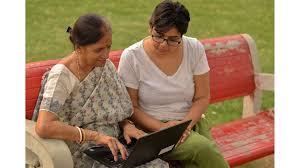Now Reading: How to Talk About Mental Health With Indian Elders Without Conflict
-
01
How to Talk About Mental Health With Indian Elders Without Conflict
How to Talk About Mental Health With Indian Elders Without Conflict

For many young Indians, especially in Tier 2 cities, bringing up mental health at home feels like walking on eggshells. Words like anxiety, therapy, or depression are often met with disbelief or discomfort. But with rising awareness among the youth, the need to explain mental health to parents and grandparents—without sounding disrespectful—is more urgent than ever.
Here’s how to approach this sensitive conversation with empathy and clarity.
Understand Where They’re Coming From
Most Indian elders grew up in a time where mental health wasn’t openly discussed. Emotional struggles were often seen as personal weaknesses or something to silently endure. Therapy was either unknown or equated with “madness.” So their hesitation isn’t always ignorance—it’s unfamiliarity.
Before trying to explain, acknowledge that they may not have had the tools or language to deal with these issues when they were younger.
Start With Familiar Concepts
Instead of jumping straight into clinical terms, connect it with what they already understand. For instance, explain anxiety as “zyaada tension lena” or depression as “mann ka bojh.” Many elders recognise these feelings but never labelled them.
Use examples they can relate to: sleeplessness, loss of appetite, overthinking, or unexplained anger. Once they see it’s not just a “phase” or “weakness,” they become more open to listening.
Avoid Blame or Arguments
If the goal is understanding, not winning a debate, then tone matters. Avoid saying things like “You just don’t get it” or “You’re being toxic.” That shuts the door before the conversation even begins.
Instead, say, “I know this sounds new, but it’s something I’ve been feeling and want to talk about.” Sharing your experience calmly builds trust and reduces resistance.
Introduce the Idea of Therapy Gently
Therapy still carries stigma, but if explained well, elders often warm up to it. Compare it to going to a doctor for a fever—just like physical health needs care, so does mental well-being. Mention that therapy isn’t about blaming others; it’s about finding tools to cope better.
If possible, share stories of known people (without personal details) who benefited from therapy. Familiarity reduces fear.
Be Patient. This Takes Time.
One conversation may not change everything. But small steps matter. Over time, as they hear more about mental health through you, films, or public discussions, the idea starts to make sense.
Also, actions often speak louder than words. When they see you setting boundaries, managing stress better, or taking care of yourself, they understand more than you think.
Conclusion
Talking about mental health with Indian elders is not easy—but it’s not impossible either. The key is to approach it with respect, real-life examples, and patience. Change won’t happen overnight, but even starting the conversation is progress. And sometimes, all it takes is one honest talk to begin breaking a generational silence.

























